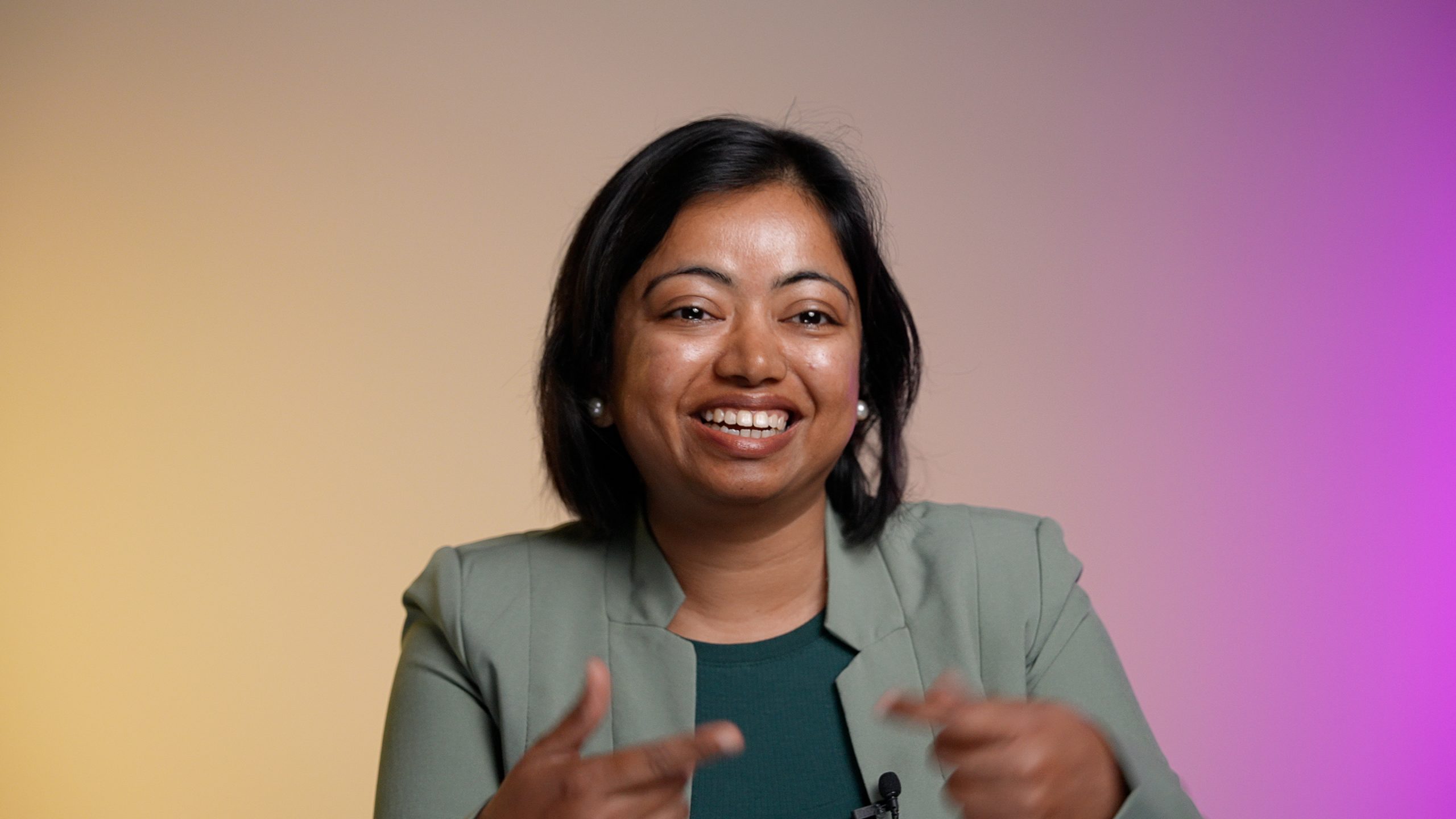‟ I build smart, invisible highways in the sky so videos, games, and calls can travel faster without getting stuck. ”
Meet Ilora Maity, whose journey from debugging software in corporate boardrooms to building “smart invisible highways in the sky” represents a remarkable career transformation from India to Luxembourg’s SnT. Trading her secure IT job for the uncertainty of PhD research, this computer scientist now orchestrates satellite network resources, ensuring your video calls and emergency alerts travel seamlessly through space. Her story proves that sometimes the best career moves require leaving comfort behind to chase connectivity – literally.
Relive the conversation—transcript below!
What is your background and what brought you to Luxembourg?
My background is in computer science and engineering. I did my PhD at IIT Kharagpur, one of India’s top technical institutions. I joined SnT in June 2021 as a postdoctoral researcher – my first time in Luxembourg. Before my PhD, I worked as a software developer but left my secure, well-paid job to pursue research because I wanted to add more value to society.
What’s the one word that describes your research?
Connectivity.
Can you explain your research in simple terms?
I develop network slicing frameworks for satellite networks using software-defined networking and AI. Think of it like building separate lanes on a digital highway so multiple services – such as video streaming, emergency alerts, and calls – can run simultaneously without getting stuck. If I had to explain it to a five-year-old, I’d say I build smart invisible highways in the sky, so videos, games, and calls can travel faster in space without getting stuck.
What’s been your biggest research challenge?
Switching from IT to research was challenging. At the beginning, adapting to the research environment and learning academic writing was difficult – it’s quite different from debugging software in a corporate setting. Then COVID hit during my PhD completion, and I had to write my thesis and defend online from home. My supervisor and family’s support helped me overcome these challenges.
What’s an underrated skill in tech research ?
Storytelling.
‟ If you can’t explain your research to other people in a relatable way, it doesn’t matter how brilliant your research is. ”
Who inspires you?
I don’t have one specific role model, but I’m inspired by successful individuals’ life stories. Recently, I read Dr. A.P.J. Abdul Kalam’s autobiography – the former Indian president and space scientist. His journey from humble beginnings to national leadership and his belief that hard work, education, and science can transform society really resonates with me.
How do you stay motivated during tough times?
I remind myself of the effort I put in to reach my current position. Getting into IIT Kharagpur’s PhD program was competitive: only 6 of us were selected from 80 candidates. When I felt insecure about my career switch, I motivated myself by remembering this achievement and hard work.
What’s your experience as a woman in tech?
Government can also help by promoting these stories and showing that tech research is collaborative; it’s not just researchers stuck alone in rooms all day.
‟ We need to highlight success stories of women in ICT to inspire young girls in school. We should showcase that ICT is a good field for career opportunities for girls. ”

